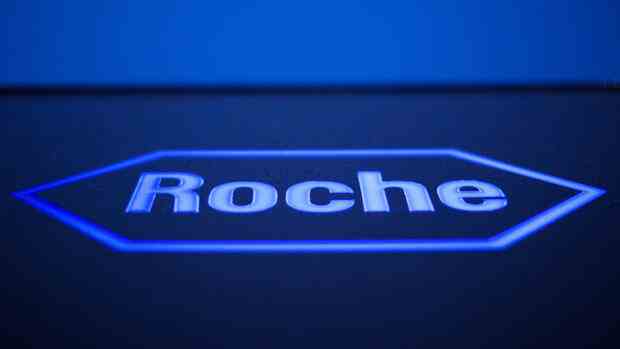The Swiss group is one of the largest producers and investors on the German pharmaceutical market.
(Photo: Reuters)
Manheim Despite harsh criticism of health policy, the Swiss pharmaceutical company Roche is strengthening its activities in Germany with another major investment. The pharmaceutical giant wants to invest 600 million euros in the construction of a new production center for diagnostics at its Penzberg site in Bavaria, as the company announced on Tuesday. This is scheduled to start operations in 2027. The number of employees should also continue to grow.
The group is thus underscoring its role as one of the leading pharmaceutical investors in Germany. Alongside Mannheim and Grenzach-Wyhlen, Penzberg is one of Roche’s three main sites in Germany. The plant, which focuses on biotechnical production and research, was acquired by the company in 1997 when it took over Boehringer Mannheim and has since been expanded several times.
Roche’s total investments in property, plant and equipment in Germany increased last year to a record level of EUR 675 million and, according to the company, have added up to around EUR 3.2 billion over the past six years. All in all, the pharmaceutical group made around 16 percent of its investments in property, plant and equipment in Germany, while only generating five percent of its sales on the German market.
Irrespective of the expansion plans, Roche Germany boss Hagen Pfundner – like several other pharmaceutical managers before him – warns of a significant deterioration in the framework conditions due to changes in the health sector. Among other things, they provide for an increased compulsory discount for pharmaceutical manufacturers and further restrictions on the pricing of innovative medicines. “This is cutting off more and more air for us here,” said Pfundner.
The current investments and thus also the major project in Penzberg are not affected by this development because the preliminary planning has been going on for two years. According to Pfundner, however, the long-term investment strategies of the industry are being called into question by the latest political measures. Roche is also considering expansion or new investments in Germany.
There is therefore the danger of a creeping exodus of the industry. The legislative initiative represents an attack on innovations and investments and harms a leading industry that creates jobs and contributes to the stabilization of the social security systems.
Location Germany plays an important role in the group
With around 18,000 employees in Germany, the Basel group is one of the largest investors and producers in the local pharmaceutical industry alongside Boehringer Ingelheim, Sanofi and Bayer. This in turn is also reflected in the business structure. Roche Germany achieved total sales of 8.1 billion euros last year – of which exports to affiliated companies in the group accounted for 4.8 billion euros.
Overall, sales fell by almost 15 percent last year, mainly due to a significant drop in sales and deliveries of corona products. As the world’s leading diagnostics manufacturer, Roche had benefited significantly from high demand for Covid tests in the previous two years. This also benefited the activities in Germany, since the group produces a large part of its diagnostics here.
Adjusted for the Covid effect, Roche Germany’s total revenues grew by almost five percent to 7.3 billion euros last year, according to the company. Around two billion of this was attributable to the pharmaceutical business in Germany.
More: Stada wants to overtake Bayer in over-the-counter medicines
